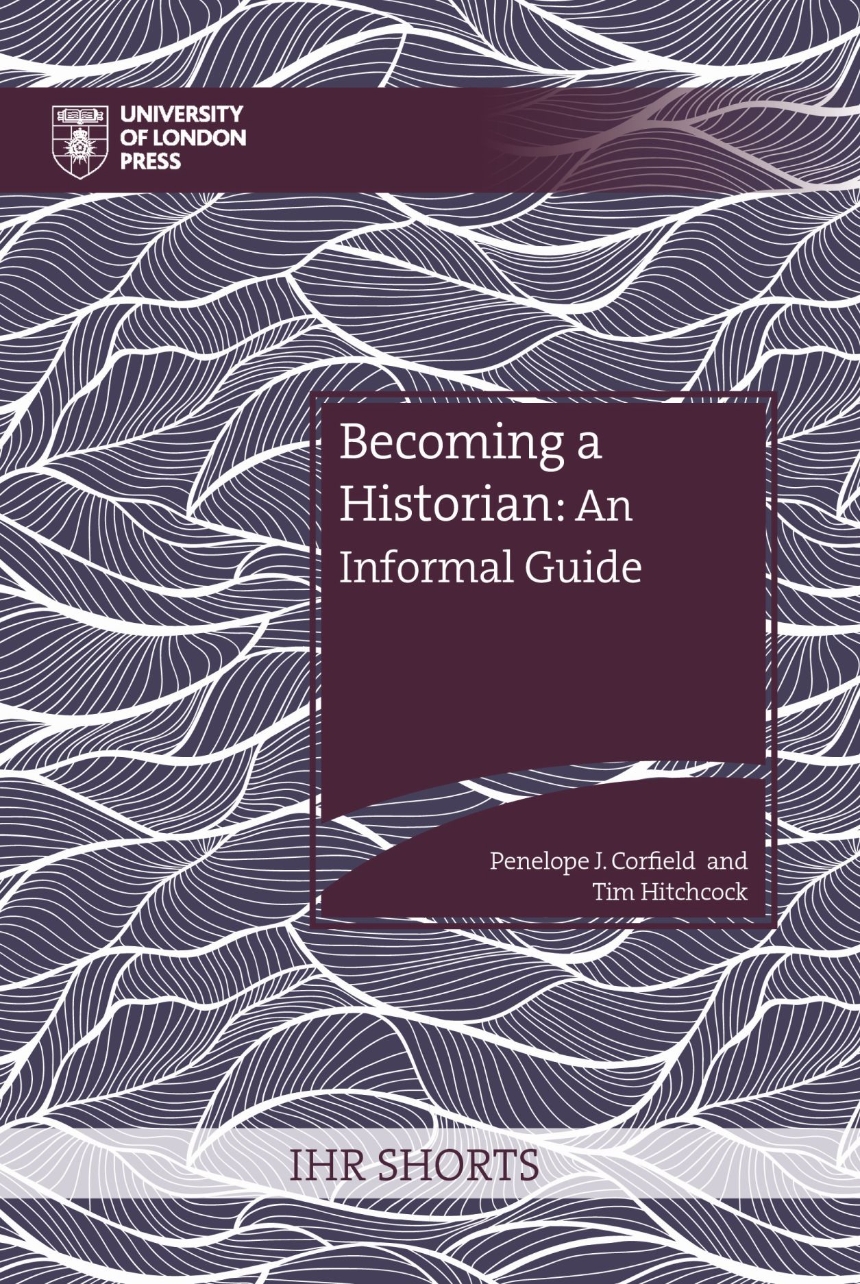An accessible guide to completing research projects and building a career as a practicing historian.
Writing history is both an art and a craft. This handbook is designed as an instructional guide to support students, independent scholars, and more. Becoming a Historian guides prospective historians on how best to participate in this vibrant community of scholars. This friendly guide will teach readers how to design research projects, how to differentiate between quantitative and qualitative research methodologies, and how to follow a project through to a positive conclusion. Becoming a Historian is also frank about the pains and pleasures of sticking with a long-term project. Finally, this guide explains how to present original research to wider audiences, including the appropriate use of social media, the art of public lecturing, and strategies for publication.
Written by esteemed historians Penelope J. Corfield and Tim Hitchcock, who bring more than forty years of collective experience to the project, Becoming a Historian explodes the myths and systems that can make the world of research seem intimidating. Instead, this guide offers step-by-step advice designed to make it easier to join this community of scholarship.
Writing history is both an art and a craft. This handbook is designed as an instructional guide to support students, independent scholars, and more. Becoming a Historian guides prospective historians on how best to participate in this vibrant community of scholars. This friendly guide will teach readers how to design research projects, how to differentiate between quantitative and qualitative research methodologies, and how to follow a project through to a positive conclusion. Becoming a Historian is also frank about the pains and pleasures of sticking with a long-term project. Finally, this guide explains how to present original research to wider audiences, including the appropriate use of social media, the art of public lecturing, and strategies for publication.
Written by esteemed historians Penelope J. Corfield and Tim Hitchcock, who bring more than forty years of collective experience to the project, Becoming a Historian explodes the myths and systems that can make the world of research seem intimidating. Instead, this guide offers step-by-step advice designed to make it easier to join this community of scholarship.
Reviews
Table of Contents
Part 1 Starting, Assessing, Organising
1.1 Joining the Through-Time Community of Historians
1.2 Launching the Research Project
1.3 Shared Monitoring of the Timetable
1.4 Finding Well-Attested Evidence
1.5 Probing Sources & Methodologies
1.6 Managing Masses of Data
Part 2 Writing, Analysing, Interpreting
2.1 Writing as a Historian
2.2 Doing It in Public: Historians & Social Media
2.3 Unblocking Writer’s Block, or Better Still, Non-Blocking in the First Place
2.4 Using Technology Creatively: Digital History
2.5 Assessing Some Key Research Approaches
2.6 Troubleshooting
Part 3 Presenting, Completing & Moving Onwards
3.1 Public Lecturing
3.2 Asking & Answering Seminar Questions
3.3 Chairing Seminars
3.4 Taking the Last Steps to Completion
3.5 Experiencing the Viva including Appendix: Note on Range of Viva Outcomes & Appropriate Responses
3.6 Moving Onwards to Publication & Civic Engagement
Part 4 Taking the Long View – Career Outcomes
4.1 Academic Trackways
4.2 Parallel Trackways
4.3 Summary: Trained Historians’ Knowledge and Skills
Part 5 Reflecting
5.1.1 & 5.1.2 Retrospective Thoughts
Select Booklist
1.1 Joining the Through-Time Community of Historians
1.2 Launching the Research Project
1.3 Shared Monitoring of the Timetable
1.4 Finding Well-Attested Evidence
1.5 Probing Sources & Methodologies
1.6 Managing Masses of Data
Part 2 Writing, Analysing, Interpreting
2.1 Writing as a Historian
2.2 Doing It in Public: Historians & Social Media
2.3 Unblocking Writer’s Block, or Better Still, Non-Blocking in the First Place
2.4 Using Technology Creatively: Digital History
2.5 Assessing Some Key Research Approaches
2.6 Troubleshooting
Part 3 Presenting, Completing & Moving Onwards
3.1 Public Lecturing
3.2 Asking & Answering Seminar Questions
3.3 Chairing Seminars
3.4 Taking the Last Steps to Completion
3.5 Experiencing the Viva including Appendix: Note on Range of Viva Outcomes & Appropriate Responses
3.6 Moving Onwards to Publication & Civic Engagement
Part 4 Taking the Long View – Career Outcomes
4.1 Academic Trackways
4.2 Parallel Trackways
4.3 Summary: Trained Historians’ Knowledge and Skills
Part 5 Reflecting
5.1.1 & 5.1.2 Retrospective Thoughts
Select Booklist

